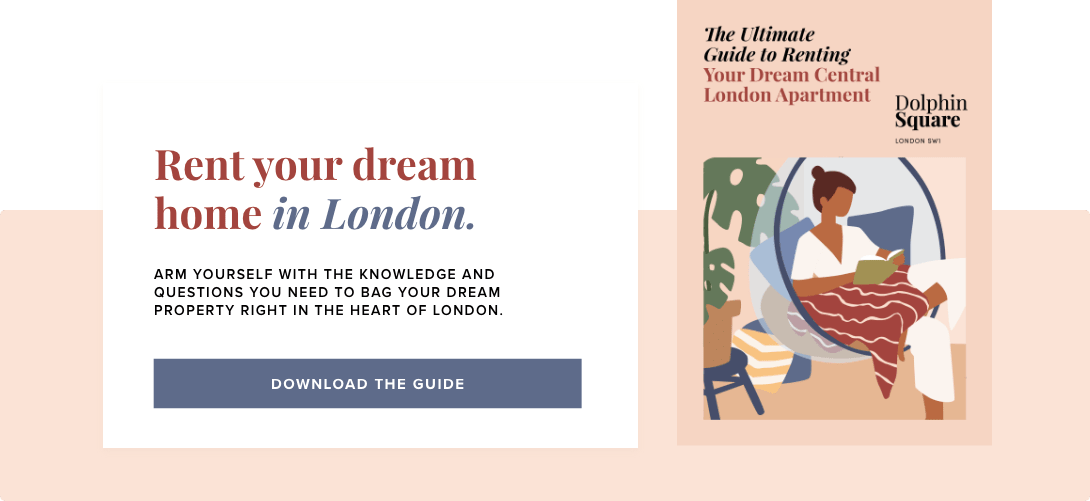Hunting for an apartment to rent in London can at times seem like a stressful and haphazard task. Finding suitable properties that meet your criteria, arranging viewings, touring them to check they live up to expectations and making sure you ask all the right questions at the same time is challenging.
To take some of the stress out of the process, and to ensure you end up with the best apartment for you, it’s important to be methodical. Before heading to viewings, you should know exactly what questions to ask when looking to rent. They won’t always be forthcoming with information - in some cases because they’re busy and in other cases because there’s information they would rather you didn’t know.
In this guide, we’ve compiled our 15 must-ask questions to ask when renting to help you ensure that the apartment you love the look of is actually the right place for you to live.
15 questions to ask when viewing apartments to rent
1. Who will be managing the property and what happens if anything goes wrong?
One of the trickiest challengers renters face is ensuring any problems that arise during their tenancy - from boilers breaking to getting locked out - will be quickly and effectively dealt with. Good landlords typically retain property management companies who are in charge of resolving such issues. Before you move in, they should give you the contact details you need to get in touch with the relevant parties should you face such issues.
Asking who manages the property and what will happen if something goes wrong will tell you a lot about the landlord and the level of service you can expect during your tenancy. If they have no firm plan, this is a red flag that should not be ignored.
2. Who is my first point of contact?
Similarly, you should use viewings to find out who your first point of contact will be should an issue arise, or should you need to discuss your tenancy. The answer to this question will give you a good idea of how responsive you can expect your contact to be too. Landlords with smaller property portfolios may list themselves as first point of contact. While this isn’t always a bad thing, bear in mind the landlord will likely have other responsibilities such as a day job, and may not always be at your beck and call.
If your first point of contact is a property management company, search for reviews online to gage how effective their service is.
3. Do you take a holding deposit? And if so, how does it work?
Holding deposits are frequently used by landlords in London to ensure that potential tenants are serious about moving in, and to negate potential revenue loss should they decide not to. Typically, the potential tenant will pay the holding deposit to ensure the landlord or property company halt viewings on the property, and don’t allow anyone else to rent it, while they come up with the funds for deposit and the first instalment of rent.
If your landlord does take a holding deposit, you’ll want to ensure that this will prompt them to take the property off the market. You’ll also need to know how long the holding deposit will hold the property for, and how you’ll get it back - for example, will the fee be knocked off your deposit, or will it be transferred back to your bank account? It’s also essential to find out what circumstances would cause you to lose the holding deposit.
4. Can I check the EPC?
Checking the property’s Energy Performance Certificate will tell you how environmentally friendly the property is, and give you some insight into how much your energy bills will cost. If the property scores poorly on the EPC, you can expect bills to be higher, as more heat will escape. When moving into any property, the landlord should give you a copy of the EPC. However, they should also have a copy available at your viewing.
5. What is included in the monthly rental cost?
Your monthly rent may simply cover the rent of the property. However, in some cases it may also cover various bills such as electricity, parking, or Wi-Fi. In order to ensure you’re renting a property within your budget, you need to check exactly what the rent will cover, as this will make a significant difference to whether you can realistically afford to rent the property or not.
6. Are there any restrictive clauses in the rental contract?
Once you get your eyes on the contract, it’s advisable to go over it with a fine tooth comb to check you’re happy with the conditions. However, it’s disappointing to get to that stage of renting, and have to halt the process. You can get around this by asking the landlord or agency if there are any restrictive or unusual clauses in the contract. These could surround:
- Pets
- Curfew
- No noise after X time
- Frequent property inspections
7. What insurance does the landlord have to cover the property? What do I need to insure myself?
Finding out what insurance the landlord has taken out for the property will clue you into the level of insurance you’ll need to shell out for yourself. Typically, landlords will have some form of property insurance, but in some cases you may need to insure your own belongings against theft or disasters such as fire.
8. What is the duration of the contract?
One of the first questions to ask when renting an apartment is what duration of contract the landlord is asking for. Rental contracts can last from anything from six months to multiple years. In certain circumstances you may find rolling contracts - while allow either the tenant or the landlord to exit the agreement at any time - and very short-term lets for terms such as three months. Decide what length of tenancy you ideally want going into the viewing, and consider whether you’re willing to be flexible on this.
9. What are the neighbourhood and surrounding area like?
Whether the landlord lives - or has lived - in the neighbourhood, they will be able to provide a good level of insight into what it is like to live there. Ask about bars, restaurants, and shops, as well as crime rates and cultural attractions.
10. Who are my neighbours?
You’ll want to know who you’re going to be living next door to - and the viewing is really the only way to find this out. Pose questions as to what the neighbours are like, and what previous tenants have said about living next door to them.
11. What are my transport options?
Whether you have a car or not, if you live in London you’ll spend a lot of time on public transport. Ask your landlord what your different transport options are to get to different places, and how long it takes to walk to various locations nearby.
12. Does the apartment come with a parking spot?
Many apartments come with a parking space as part of the deal. In other cases, you’ll have to pay extra for your parking spot, or pay for a permit to park on a street nearby. Sometimes there will be no parking options at all, meaning you have to choose between the apartment and keeping your car. For obvious reasons, asking whether the apartment comes with a parking spot included is vital for tenants with cars. This could make all the difference between moving in and finding somewhere else.
13. Can I decorate my NEW hOME?
This one largely depends on the landlord’s attitude. Most will allow a certain level of decoration - such as hanging pictures - but often anything more comprehensive than that is off-limits. If you move into a recently refurbished apartment, for example, the landlord may not allow you to paint the walls. It’s very important to check where your landlord stands on this because if you decorate without commission, you could lose your deposit.
14. Can I have pets?
If you’ve not asked this ahead of the viewing, get it out the way first. If you’re hoping to move with your pet in tow, and yet your landlord has a blanket ban on furry friends, there’s little point even seeing the apartment.
15. Asking the owner/agency: Is there anything you think I should know?
For a true belt and braces approach, once you’ve asked all of the above questions, ask the person conducting your viewing whether they think there’s anything else you need to know.
Conclusion
Finding apartments for rent in London UK - where so many other people are looking for the same thing - can admittedly be a daunting task, but if you bring our list of questions with you, you can be sure you won’t end up with any unwelcome surprises on moving day.
If you like the look of Dolphin Square’s apartments in Pimlico, please reach out to us to book a viewing. We promise we’ll be happy to answer any and all of your questions, and give you all the information you need to work out if our luxury apartments are the right place for you to live in the capital.






